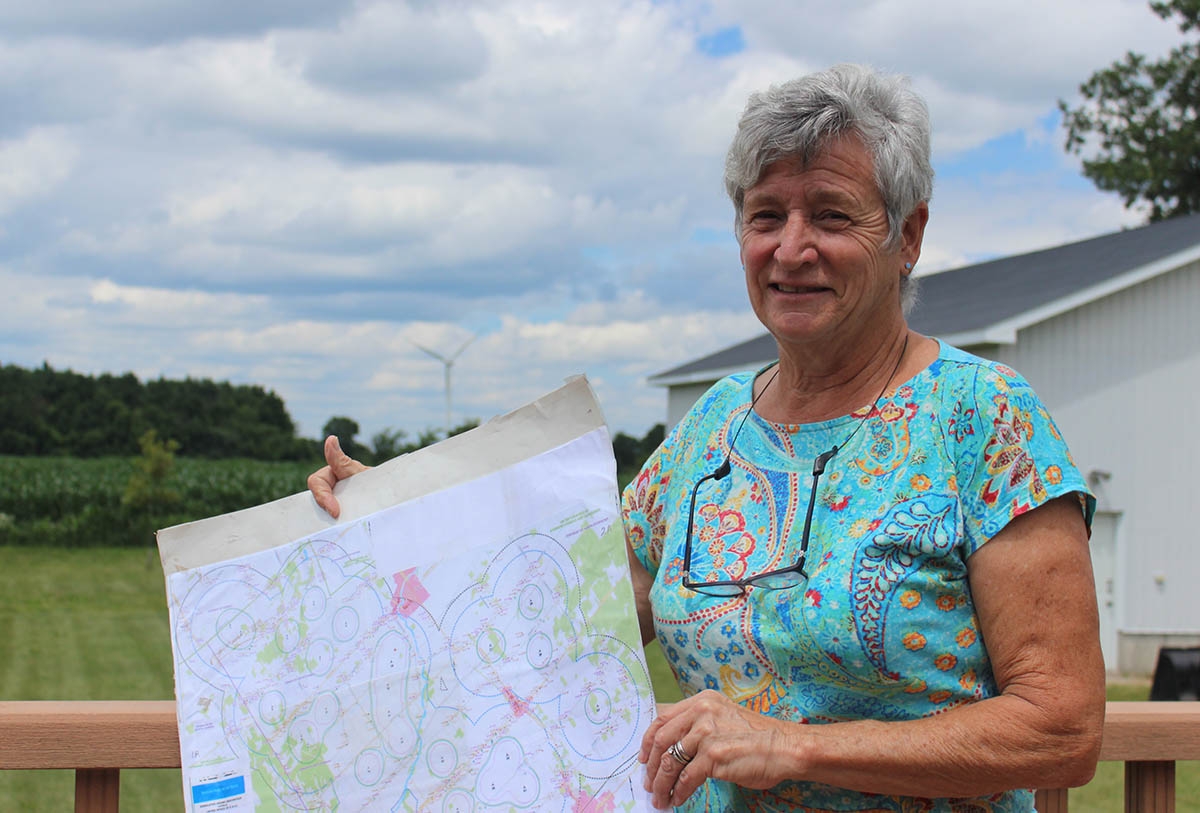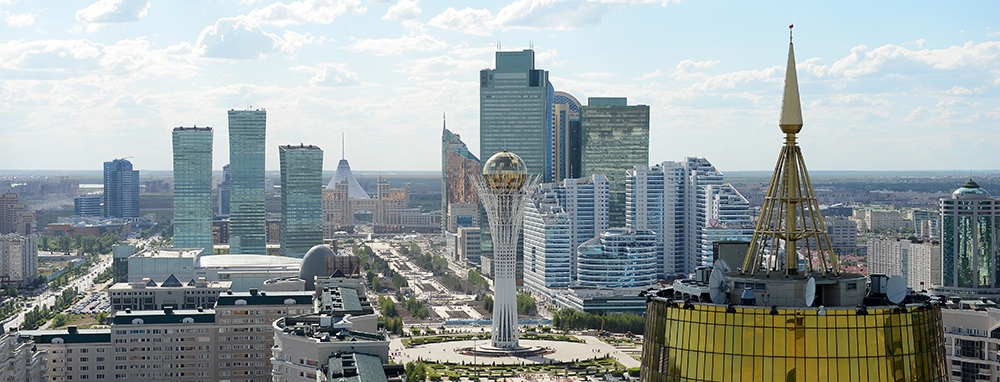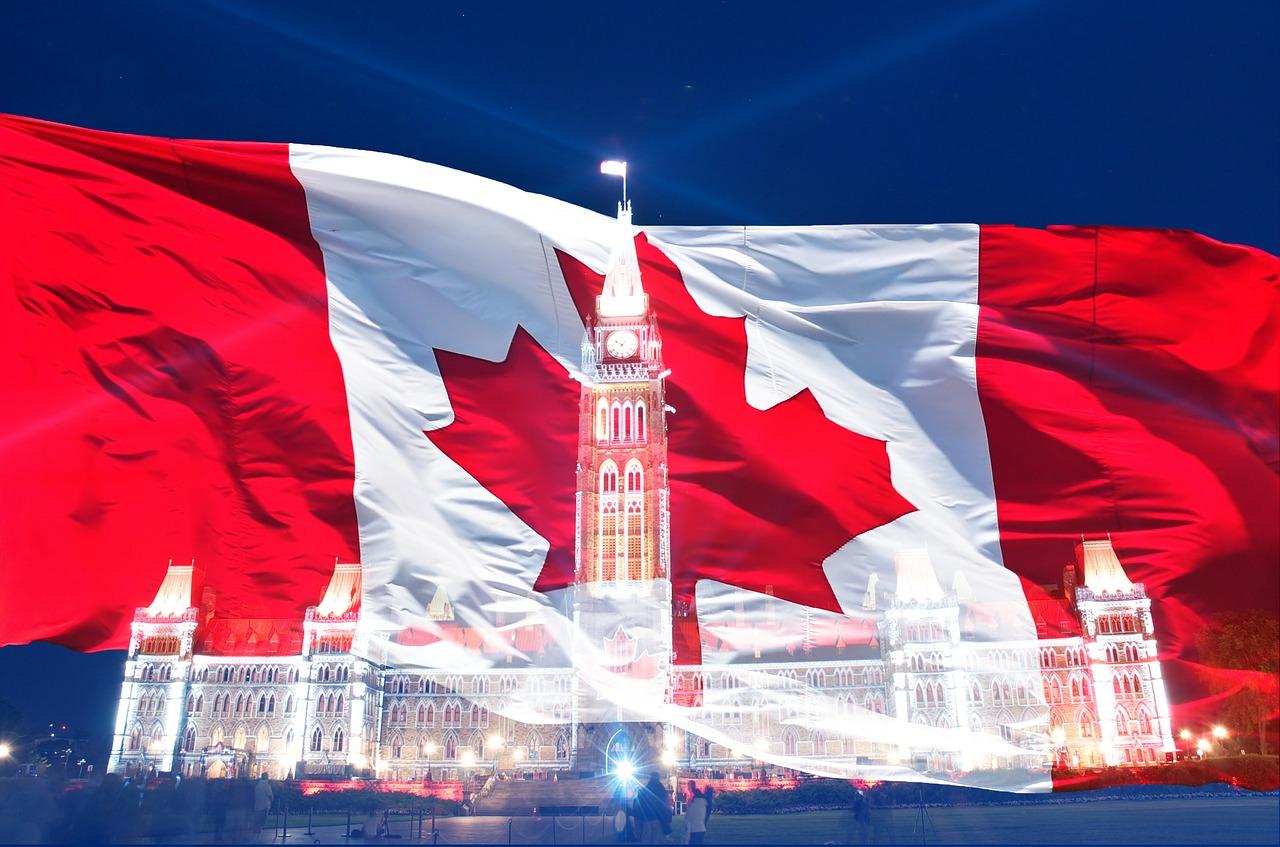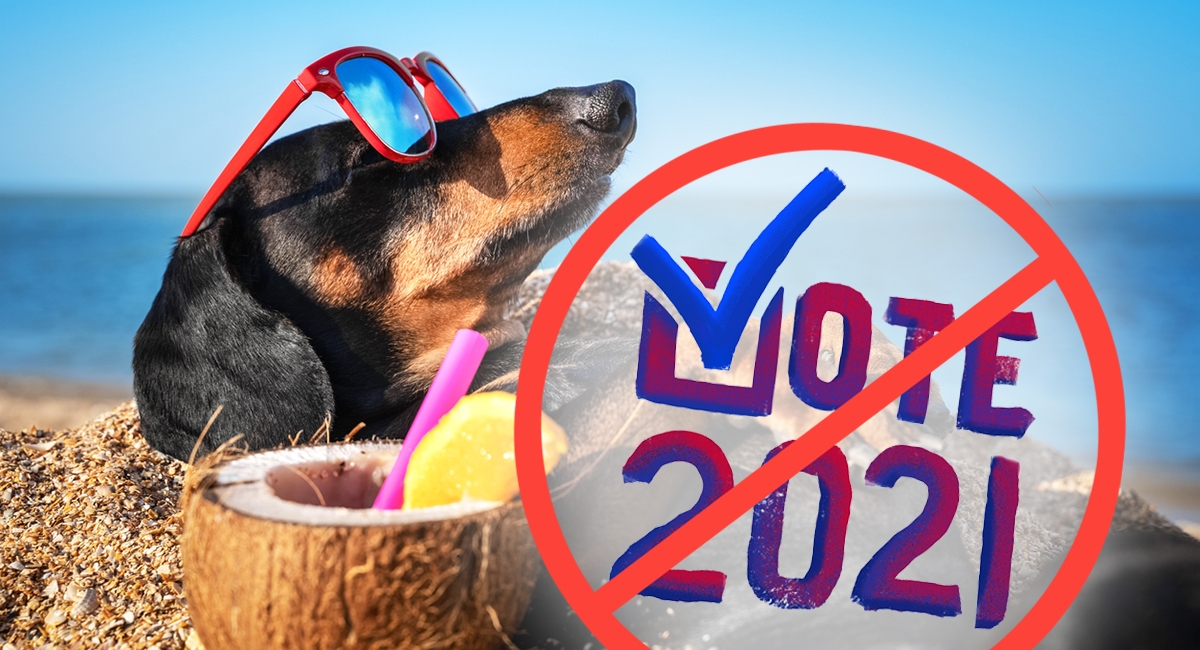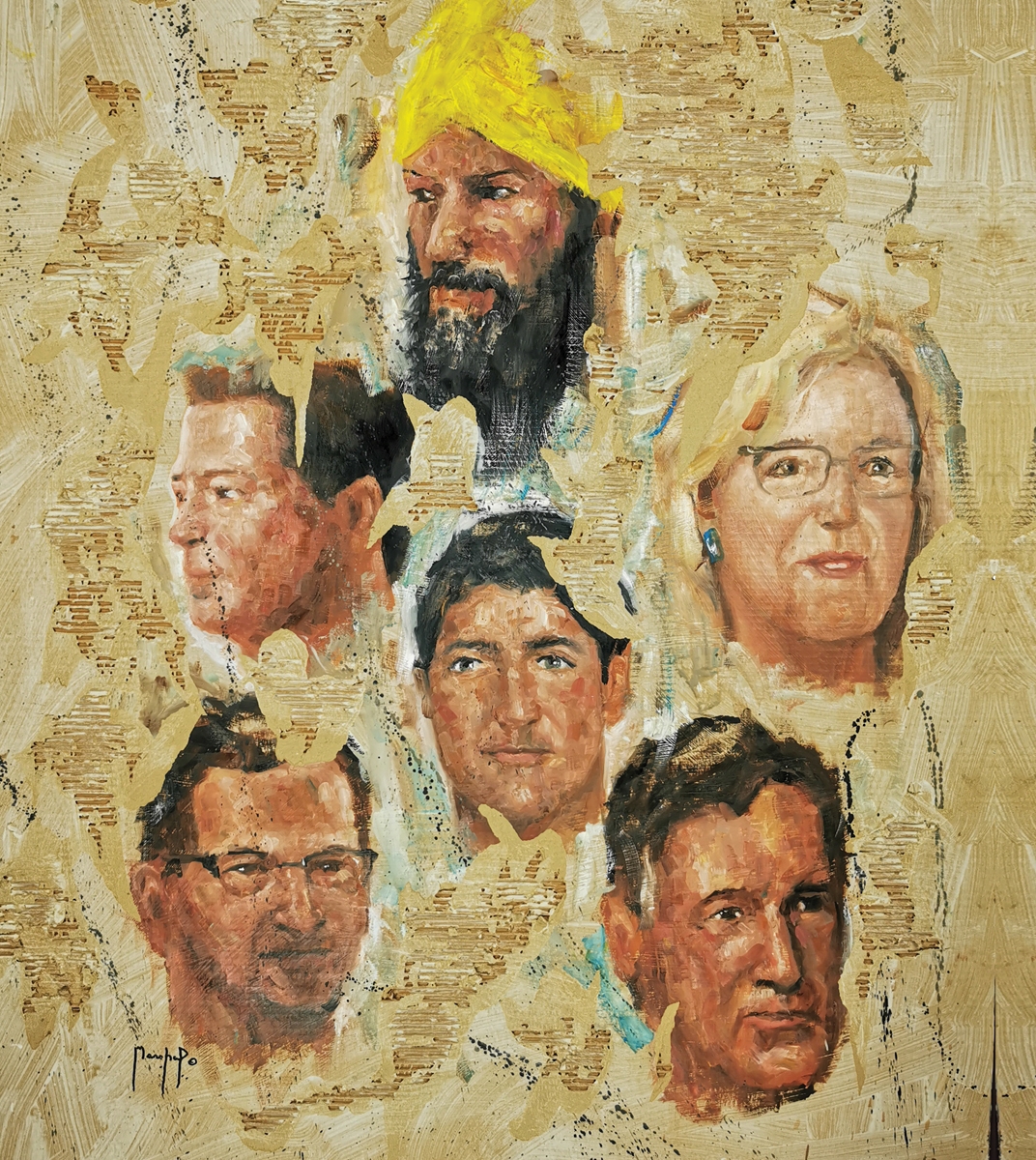
The corrosive effect of negative politics
Illustration by Joe Foster
Former Prime Ministers Joe Clark, John Turner, Brian Mulroney, Kim Campbell, Jean Chrétien, Paul Martin and Stephen Harper all believed in the merit of public service and that politics was an honourable profession. They were civil towards each other when debating the great issues of the day, and believed in the principle of being able to agree to disagree, agreeably. Most importantly, they never demonized their opponents or suggested they were un-Canadian for having a different perspective.
Premier Réne Lévesque was a brilliant leader and a passionate separatist, but always a democrat. He and Pierre Elliott Trudeau (PET) had mythological debates about Canada and the French fact, and Quebec’s place in Canada. Both Lévesque and later, Bloc Quebecois leader Lucien Bouchard, would attempt to take Quebec out of Canada via fiery but respectful debates that took place during two referendums. Preston Manning used populist politics and the battle cry, “The west wants in”, that laid the foundation for Stephen Harper’s eventual rise to power as Prime Minister for a decade.
Those times were difficult, adversarial, and occasionally a tad mean spirited but they were never as toxic, dismissive, divisive, disrespectful, nasty, angry or as downright personal as today.
Former Toronto Danforth Liberal MP Dennis Mills won four consecutive elections before NDP leader Jack Layton defeated him in a very close race, in 2004. Mills and Layton had a battle royal, but they never got personal with each other. They recognized that civility between leaders has a trickle-down effect in the broader community. If leaders act out their worst thoughts and basest instincts and set the bar low, society will surely follow. Mill’s was fond of saying, ‘The high road is the only road’. They were strong adversaries, but they would never suggest the other was un-Canadian for having a different point of view.
Fast forward to the 2019 election: a toxic affair defined by personal insults, fake news, crass lying and fearmongering by all parties and their leaders. There is no real winner, only one big loser — the Canadian public.
As a result, Canada is a country more deeply divided than it has ever been. It is reminiscent of the two solitudes narrative first used in 1838 by Lord Durham, the Governor General and high commissioner of British North America who referred to the French and the English as, “Two nations warring in the bosom of a single state.”
Today, the warring factions are polarized ideologically and geographically. Progressive Liberals in the east versus middle-of-the-road Conservatives in the west, particularly in Alberta and Saskatchewan.
Westerners are deeply resentful that decisions about their future prosperity and livelihoods will be made by a Liberal minority government led by a polarizing and narcissistic prime minister who is so widely disliked that he was not able to elect a single one of his Liberal candidates in Alberta or Saskatchewan. (In Saskatchewan, the Conservatives swept all 14 ridings and 33 of 34 in Alberta). They are also upset that Trudeau’s minority government is now propped up by Jagmeet Singh, a charismatic, fourth party, anti-resource sector socialist from Brampton, Ontario whose party managed to elect only one MP in Alberta, was completely shut out in Saskatchewan and lost one third of the seats they held nationally before the election.
As Prime Minister, Justin Trudeau frittered away his first term by demonizing opponents whose views he did not share, and by playing one province off against another at the expense of national unity. Many are questioning, to what end? In the West, calls for a Wexit (Western Separation) and a rethinking of confederation and equalization payments have dominated radio stations and headlines since the vote.
Polls are for dogs
The 2019 election displayed in real time the corrosive effects of the post-truth age on Canada’s democracy. Facts don’t matter. Spin from biased and elitist national media talking heads with the attention span of a gnat determined the national narrative. These spinmeisters polished their ‘informed’ media lines with ‘scientific data’ they accepted without question from pollsters who apparently can tell from their ‘polling’ what the public thinks on a daily and hourly basis.
Pollsters often use questionable samples and trick questions that lead to pre-ordained answers rather than real truths. Despite this, the CBC, CTV and other media presented their data daily as part of the election coverage. Several posted reader surveys which were then processed via software to tell the reader which political party would be their best fit.
Subjective surveys and polling cannot measure things like personal character, emotion, authenticity, context and other key factors. The effect this has on the voter in unknown. However, one can surmise that if people are told daily for several weeks by the CBC and other national media that a certain outcome is preordained — like there will be a minority government — then there is a very good chance the broader public will start to believe it and this will affect how they vote.
Pollsters do not release their sampling data or the context or reasoning behind their many subjective questions or why or how they interpret questions that lead responders to answering in certain ways. Are they questioning the same groups of people, or different people? How are they contacting them? Is the sampling objective or is it taken from parts of an area with a political history or bias? We aren’t told.
The reality is that pollsters are like weather reporters in that they can guesstimate things, but they really don’t know until it rains. If a sunny day happens instead, it’s a statistical glitch. This is why former Prime Minister John Diefenbaker once famously commented that, “Polls are for dogs”.
Besides, most pollsters in Canada are in a conflict of interest. While reporting their interpretation of polling results to the nation, they are in the parallel business of providing polling and communication services to federal government departments or organizations that receive federal funding. There is a strong case to be made for banning all polling from the day an election is called until the day it is over. It would take all influence baiting out of the election equation. Polling is not a science. It is a subjective endeavour at best. There are just too many variables to suggest otherwise.
Post-truth discourse
The 2019 election displayed in all its ugliness the post-truth discourse that now defines politics in Canada. In this new normal, experts are dismissed and replaced by ‘alternative facts’ presented by influencers or people claiming to be subject-matter experts whose only expertise is that they have an opinion or are a public figure. With Facebook, Twitter, Instagram and other social media at everyone’s fingertips, it is easy to suppress facts and replace them with lies or outrageous statements designed to generate an emotional response.
The age of reason is in the distant past. This has a corroding effect on the electorate and leads to a high degree of cynicism and an erosion of trust.
If accountability starts at the top, then Prime Minister Justin Trudeau owns a large share of the blame for the current toxic climate and divisiveness in the country.
On election night, the Liberals got 156 seats—14 short of the 170 needed for a majority in the 338-seat House of Commons. Despite being reduced to a minority, losing the popular vote to the Conservatives, and being completely wiped off the electoral map in Alberta and Saskatchewan, humility continues to evade Trudeau. His election night ‘victory’ remarks read like he had just won a massive majority. Trudeau declared the results gave him “a clear mandate” and that Canadians had rejected cuts and austerity in favour of, “a progressive agenda and strong action on climate change.” The problem is that is not what happened in the election. More Canadians voted for Andrew Scheer than for Trudeau. Ironically, he only remains prime minister because he kept the first past the post system (FPTP) despite promising on multiple occasions that 2015 would be the last election with FPTP.
Trudeau also chose to ignore the unwritten practice for an election winner to let those who have lost address their supporters first. He cynically timed his speech in Montreal to start within moments of Conservative Leader Andrew Scheer beginning his concession speech in Regina. Scheer too skipped the protocol and began his speech before NDP Leader Jagmeet Singh had finished his remarks in Burnaby, B.C. Simple gestures and a return to decency were lost on all of them.
‘Cynical’ replaces ‘sunny’ ways
The Liberal 2019 campaign was a stark contrast from their upbeat 2015 sunny ways theme that contrasted sharply with then incumbent Prime Minister Stephen Harper’s tired, and prickly persona. 2019 was more ‘cynical ways’ with Trudeau saying that Andrew Scheer’s values were ‘un-Canadian’ and that his supporters were everything from climate change deniers to austerity cutting slash and burn revisionists. The Liberal war room suggested that Scheer had ties to white supremacists, was anti LGTBQ, a pro-life, anti-abortionist who would take away a woman’s right to choose and an anti-gun control, pro- firearms redneck who favoured capital punishment.
Prime Minister Blackface
When Time magazine published a mid-campaign photo of Trudeau taken in 2001 as a 29-year-old high school teacher dressed in blackface at a school party the nation was shocked. Trudeau apologized for the incident saying, “I shouldn’t have done that. I should have known better and I didn’t. I’m really sorry.” It was Trudeau’s Trumpian ‘grab’em by the pussy’ moment. Within hours of his initial apology, two more incidents emerged of Trudeau wearing blackface. His new response was to claim he did not know better back then because of his ‘privilege.’
The blackface eruption had an unintended consequence in that in clearly showed that Trudeau had either lied or deliberately withheld information about his past during his own candidate vetting process. Yet, as a leader he had dismissed at least two former Liberal MPs on unproven allegations of misconduct and disallowed numerous others from running due to vetting issues. Trudeau was the judge, the jury and the decider for it all.
Candyland and Liberal apologists
As Canadians processed the blackface scandal and what it meant, the Trudeau team went into overdrive assembling a cadre of higher profile apologists from minority communities from coast-to-coast-to-coast to appear in a series of interviews claiming that the blackface thing was no big deal. Ontario Liberal MPP Mitzie Hunter, Greg Fergus, a black Liberal MP for Hull-Aylmer, Defence Minister Harjit Sajjan, Natural Resource Minister Navdeep Bains, Amarjeet Sohi, Minister of Natural Resources and Liberal House Leader Bardish Chagger, all publicly defended Trudeau over wearing blackface. ’Progressive’ Calgary Mayor Naheed Nenshi penned a weird almost cult like op-ed to patronizingly ‘explain and excuse’ Trudeau’s behaviour. Any of them could have easily played Samuel L. Jackson’s twisted and scowling character Stephen in the movie Django Unchained. Stephen is constantly seeking the adoration of his master Calvin Candie, (Leonardo DiCaprio) and will do anything for his approval regardless of Candie’s appalling behaviour towards his fellow slaves on the plantation. The blackface matter went Kafkaesque in the final days of the campaign when Humber River—Black Creek Liberal MP Judy Sgro told a reporter in her riding that,“Those in the black community have told me how much more love they have for the prime minister, that he wanted to have a blackface, that he took great pride in that too.”
Sadly, for Canada, Sgro was re-elected.
Elections are not about debating issues
Trudeau declined to participate in the Maclean’s/City TV English debate, leaving the exchange up to Singh, Scheer, and May. He refused to participate in the Munk Debates, which were then cancelled. As a result, there was no discussion or debate in the election on Canada’s problems in foreign affairs including the continuing controversy with China regarding the Meng affair that has devastated the Canadian canola sector, or over strained relations between the Trudeau government and India, Russia and Saudi Arabia.
Do as I say not as I do
The Liberal party vilification of the Conservatives as climate deniers hit a credibility gap when it was discovered that ‘Team Trudeau’ was using two planes for their campaign, emitting twice as much carbon as all of the other leaders. Trudeau brushed it off saying that the Liberals buy carbon offsets to make up for the extra emissions. He then pivoted and attacked Scheer saying that the Conservatives did not buy carbon offsets. Trudeau seemed incapable of understanding the point that his campaign was polluting twice as much as the other parties. As Ottawa’s popular morning show host Bill Carroll of CFRA pointed out: “Yeah, here’s Trudeau’s logic — it is like taking two half-empty cans of oil-based paint from your garage and dumping them in the Ottawa River and then making a $10 dollar donation to Greenpeace and claiming you didn’t pollute because you’ve ‘offset’ it.”
Trudeau’s election performance showed he is a master of the Kellyanne Conway school of politics where, when asked about anything uncomfortable, just don’t answer the question and simply make up your own fiction. When questioned about racism, specifically him wearing blackface, Trudeau answered by saying he continues to fight racism as if he never wore blackface. Same thing for when he was asked about the accusation by a woman that he had groped her. His response was that they had an encounter and she ‘experienced it differently.’
On SNC-Lavalin and the matter of interfering in a criminal case and being found guilty of ethical breaches by the Ethics Commissioner twice, Trudeau looked straight into the camera saying he did nothing wrong and that he only wanted the former Attorney General, Jody Wilson Raybould, to intervene because he was concerned about SNC losing jobs in Quebec. This was a bold-faced lie said with a smile and a wink. The SNC President has commented publicly several times that there were never any SNC jobs at risk. The Ethics Commissioner said the same. But facts don’t matter.
Despite a strong tradition of having no foreign interference in Canadian elections, the Liberal campaign team began to panic in the days leading up to the vote. They arranged for an October 16, 2019 tweet of endorsement by Barack Obama for Justin Trudeau. “I was proud to work with Justin Trudeau as President. He’s a hard-working, effective leader who takes on big issues like climate change. The world needs his progressive leadership now, and I hope our neighbors to the north support him for another term.” The tweet coincided with a Liberal message to centre and centre-left citizens claiming that a vote for either the NDP or Green Party would split the ’progressive vote’ and turn Canada over to the Conservatives who would then destroy the country’s future with austerity and slash-and-burn policies that had been championed by Ontario Conservative Premier Doug Ford. It worked, but it left the country bitterly divided.
Conservative Leader Andrew Scheer won the popular vote over the Trudeau Liberals by a small margin and increased the Tory seat count to 122 from a pre-election number of 95. However, his obvious dislike for Trudeau, at times verging on contempt, did not resonate with voters. In the English debate Scheer began by ignoring the opening question, turned to Trudeau and said: “Justin Trudeau only pretends to stand up for Canada. You know, he’s very good at pretending things. He can’t even remember how many times he put blackface on. Because the fact of the matter is, he’s always wearing a mask. He puts on a reconciliation mask and then fires the Attorney General, the first one of Indigenous background. He puts on a feminist mask and then fires two strong female MPs for not going along with his corruption. He puts on a middle-class mask and then raises taxes on middle class Canadians. Mr. Trudeau, you are a phony and you are a fraud, and you do not deserve to govern this country.”
It was a direct, low and mean-spirited comment from Scheer. He had the option of taking the high road, acting prime ministerial like, and getting his point across in a positive way. He could have said that Canadians were profoundly disappointed in Trudeau who had let the country down and that as prime minister he (Scheer) would never do that and would always put Canada first. Scheer’s hard-core body slam seemed to catch people off guard and not in a good way. It reinforced the ‘angry Tory’ syndrome that had haunted and then killed the Harper government, in 2015. Scheer seemed to forget that to win he needed the support of potential switch voters — blue liberals who might vote Tory. Instead those angry and terse comments served to alienate many of them.
Andrew Scheer further hurt his own brand by demanding accountability and transparency from Trudeau on multiple occasions yet was not transparent himself when put under the spotlight. When accusations surfaced that the Conservatives had hired former Liberal backroom strategist and political warhorse Warren Kinsella to “seek and destroy” Maxime Bernier’s People’s Party of Canada, Scheer refused on multiple occasions to address the issue. On October 3, 2019, The Globe and Mail reported that Scheer has dual U.S.-Canadian citizenship. That Scheer had never once mentioned this in his 15 years as a MP or when he was Speaker of the House or since becoming Conservative Leader was bizarre. He said he began the process of renouncing his U.S. citizenship last year and had not spoken about it because, “he was never asked”. It hurt his credibility over transparency matters immensely. To fend off Scheer’s constant personal attacks on Trudeau, the Liberals charged he was lying about his claim that he was once an insurance broker. Scheer responded saying, “I did receive my accreditation. I left the insurance office before the licensing process was finalized.” However, the damage was done, and it left the impression Scheer was not being truthful and forthcoming.
Many agreed that the only real civil moment in the campaign occurred towards the end of the English debate when Scheer commended Jagmeet Singh for the way Singh handled racism throughout the election. Interestingly, Trudeau and May picked up on Scheer’s comments and also congratulated Singh. It was refreshing.
Singh wins and losses in the same election
Expectations for Jagmeet Singh were low going into the election and he exceeded them. He needed to because there was a real danger that the NDP could be wiped out. As party leader for the previous 18 months, Singh had proven to be a disastrous manager in both fundraising and dealing with his parliamentary caucus. The election team was on financial life support when the race started. Despite a strong personal campaign by Singh, the NDP dropped from 39 to 24 seats and were crushed in Quebec, a province that only eight years ago had propelled the Jack Layton led NDP to official opposition status, for the first time.
Singh’s authentic and likeable persona resonated with many voters during the campaign. However, in the post-truth world from which he comes, his propensity to make stuff up without evidence or facts to support his positions hurt him with more mainstream voters. He promised free dental care, but could not say how he would pay for it; he promised reduced cell phone fees for everyone without costing it; he promised the building of an additional 500,00 homes within five years for low income families without saying specifically where he would get the money; he promised a massive transition away from the carbon economy to green technologies without presenting a detailed plan of action.
During the English debate Singh had a great line where he reminded Canadians that they did not need to choose between ‘Mr. Delayed (Trudeau) and Mr. Denied (Scheer),” referring to himself and his climate plan as the other option. Later, when pressed for details, Singh could not answer basic questions about his climate plan on cost and how he would implement it. He faced a similar credibility gap by billing himself as a champion for minority rights, but then in the next breath said he would not challenge Quebec’s controversial Bill 21, clearly a discriminatory law directed against religious minorities. Former NDP leader Tom Mulcair declared that Singh had ‘completely abandoned’ the NDP legacy of defending religious rights in his handling of the debate over Quebec’s secularism bill.
Singh took several cheap personal shots at Maxime Bernier in the debates suggesting Bernier was inherently racist because he wanted to change Canada’s immigration policy. Bernier retorted pointing out that Canada has free speech and a discussion about reducing the levels of immigration or changing immigration policy was a matter that should be open for discussion for all Canadians. Singh doubled down and seemed to be suggesting that any discussion about reducing immigration number was racist. To his supporters it was a defining moment. To others, not so much.
Singh was widely regarded as the winner of the English debate, despite his invective with Bernier. This led to panic in Elizabeth May’s Green Party as she saw her chances for a possible third place finish evaporate.
Hair on fire
Elizabeth May and the Green Party had a disastrous campaign. Her entire election theme was that the world faces a climate catastrophe in the next 15 years unless Green Party members were elected with enough clout to ensure ‘their’ progressive climate action agenda was implemented. May’s tendency to lecture and finger point grated on many voters. She released policies including a national pharma care plan with a 30-billion-dollar price tag. In the debates she talked about transitioning away from a carbon eco-nomy yet was vague on the specifics. Given that over 150,000 western Canadians who work in the resource economy are unemployed in part due to the Trudeau government’s ‘progressive energy policies’, her message did not resonate.
May showed her personal dislike for Andrew Scheer, and made wild statements about ties to Trump and his apparent admiration for Boris Johnson and Brexit. In one of her more petulant moments during the English debate she pointed at Scheer and said, “You’re not going to be prime minister”. Scheer firmly rebuffed her, but it was an uncomfortable and mean-spirited moment in the debate. May’s frustration seemed to grow the more Jagmeet Singh seemed to connect with far-left supporters. By the end of the campaign May and Singh were having bitter public exchanges over claims of misleading advertising. NDP voters who were initially considering switching to the Greens, stayed with the Singh camp. On election night the Greens went from two seats to three in the House of Commons. May has been the Green Party leader since August 2006 and an MP since 2011. She and the Greens clearly have not connected with the broader Canadian electorate.
The People’s Party of Canada experiment
Maxime Bernier’s failure to win in his own riding signaled the end of the beginning for the People’s Party of Canada (PPC). Bernier tried to corral a more libertarian, business oriented free-thinking part of the population in the hopes that he could bring that agenda to Parliament. Instead he ended up attracting many unsavory extreme right-wing outliers who he could never shake off.
Bernier was right to say that the Trudeau government has really messed up the adjudication of the refugee process in Canada costing taxpayers billions of dollars. But he was being disingenuous because he knew the problem is a systems issue that can be fixed. The claim that Canada has an immigration crisis or problem is factually false. Bernier’s views on Canadian immigration and multiculturalism were not of interest to most Canadians, one third of whom are all first-generation immigrants. The only thing that all the leaders agreed upon in the entire election was that Bernier’s views on immigration were wrong and misguided. That may be the only takeaway from the PPC experiment.
The Bloc is back
The biggest winner in the election was Bloc Quebecois (BQ) leader Yves Blanchet who propelled the BQ from 10 seats to 32. The BQ is a party who want to take Quebec out of Canada. His entire campaign was based on the BQ electing MPs to Ottawa to defend the right of Quebec to function in its own way and to support what Quebecers want for Quebec. Of all the leaders he was the high-road candidate and won the most seats . . . A lesson there.
The numbers don’t lie
Canadian voters decided Justin Trudeau did not deserve a majority and that the Tories did not deserve to win. The total vote numbers tell the real story and show that ‘progressive voters’ — Liberal, Green, NDP and BQ — pulled in 11,303,660 votes compared to the Conservatives total of 6,155,662 votes and 292,808 for the more right wing PPC.
What it means
Justin Trudeau’s ‘progressive agenda’ proved intolerant to alternative views. He demonized opinions, ideologies, religions, ethnic beliefs, regional identities and political affiliations that did not conform to his views. Instead of debating issues, Trudeau has done a great disservice to Canada by suggesting that those who do not agree with him are somehow un-Canadian. Andrew Scheer and the Conservative response to this came across as anger. Scheer lacked credibility in trying to sell his message that Canada could have a prime minister who has conservative views on divisive issues like same-sex marriage and abortion and that he could be trusted by Canadians not to impose those views on the country.
Normally, personal opinions on these matters are beside the point. However, they became the point when Scheer was evasive over simple matters like his dual citizenship and work history. His harshness in holding Trudeau to account for his peccadillos backfired. Voters did not believe his assurances on controversial social issues. The Liberals relentlessly exploited this during the campaign.
Painted on coardboard, the magazine cover image by artist Joe Foster shows that if you build a cardboard house, it will surely collapse. Strong democracies allow for the ability of diverse voices to be able to disagree, agreeably. Without that, all is lost.

